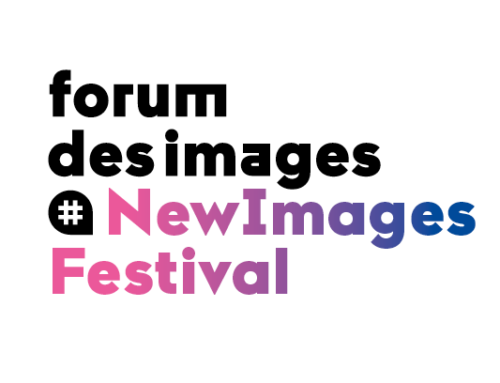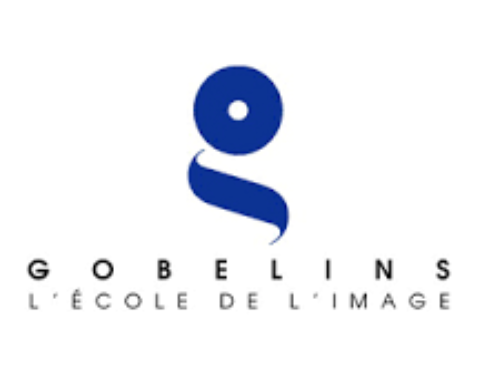DISCOVER THE FRENCH FILMS OF THE 39TH DURBAN INTERNATIONAL FILM FESTIVAL
For its 39th edition, the Durban International Film Festival will screen 185 films of all genres from July 19 to 29, 2018. At the heart of this year’s programming are current international issues, with particular emphasis on the representation of women and minority communities. The festival also wishes to pay tribute to the centenary of Nelson Mandela’s birthday this year by selecting several films about his life and struggle.
About ten French productions and co-productions will also be screened during the festival:
THE STATE AGAINST MANDELA AND THE OTHERS
by Nicolas Champeaux, Gilles Porte (France, 2018)
The State Against Mandela and the Others is a documentary based on recently recovered archival recordings of the Rivonia Trial hearings in which 10 leaders of the African National Congress were tried for 221 acts of sabotage designed to overthrow the apartheid system. Although Mandela took centre stage during the historic trial, there were nine others who, like him, faced the death sentence and were subject to pitiless cross-examinations. The film transports us back into the thick of the courtroom battles and attempts to redress the historic balance by putting Mandela’s comrades front and centre. Using animated charcoal drawings to recreate clashes between the preening prosecutor and the collective accused, along with recent interviews and archival footage, the film includes powerful testimony from Andrew Mlangeni, Walter Sisulu, Ahmed, Kathrada and Denis Goldberg, and shows how the defendants turned a trial aimed at dealing a knockout blow to the anti-apartheid movement into an indictment of white supremacist rule. The State Against Mandela and the Others is a reminder, says co-director Gilles Porte, “that all great things that happen in this world are achieved collectively.”
Screenings
20 July, 20h00, Elizabeth Sneddon Theatre;
23 July, 16h00, Suncoast 4;
24 July, 20h00, Musgrave 6
Audience Choice Award: The State Against Mandela and the Others directed by Nicolas Champeaux and Gilles Porte received a cash prize of R25 000.
POROROCA
by Constantin Popescu (Romania, France, 2017)
Cristina (Iulia Lumânare) and Tudor (Bogdan Dumitrache) are a happily married couple with two young children, Maria and Ilie. They are in their thirties and live a comfortable life in a nice apartment in Bucharest. Tudor works for a phone company, Cristina is an accountant, and their life is that of a normal, ordinary couple with children. But one Sunday morning, when Tudor is with the children in a nearby park and Cristina is doing some cleaning in the apartment, the young Maria goes missing, and the life of the family instantly changes. Powerfully rendered, the film illustrates the fragility of family life with haunting precision.
Screenings
22 July, 20h15, Musgrave 6;
23 July, 22h00, Musgrave 6;
25 July, 15h00, Gate way 12
KINSHASA MAKAMBO
by Dieudo Hamadi (Democratic Republic of the Congo, France, Switzerland, Germany, Norway, 2018)
In January 2015, the President of the Democratic Republic of Congo, Joseph Kabila, sought a constitutional amendment that would allow him to be elected president for a third time. This film documents the resulting demonstrations and follows three men who are part of the resistance. Ben, who lives in exile in New York, takes the advice of his fellow countrymen in exile and decides to join the struggle in the Congo. Jean Marie, who has just been released from prison, continues his public campaign for his country’s freedom and is persecuted by the secret service. Christian fights unperturbed in the streets of Kinshasa, even after former Prime Minister Etienne Tshisekedi, on whom the opposition had pinned their hopes, dies and the movement against Kabila’s extension of his time in office seems paralysed. Kinshasa Makambo immerses us in the combat these three activists are engaged in, a combat that bullets, prison or exile cannot seem to stop. This compelling doccie, the fourth from celebrated Congolese director Dieudo Hamadi, earned him the True Vision Award at this year’s True/False Film Festival for advancing the art of non-fiction cinema.
Screenings
22 July, 12h00, Gateway 12;
28 July, 20h00, Musgrave 3;
29 July, 18h00, Elizabeth Sneddon Theatre
SPELL REEL
by Filipa César (Germany, Portugal, France, Guinea-Bissau, 2017)
The image in the film is in black and white, upside down, projected into a black box that then becomes the frame. It hovers like a time capsule near a man’s face. He looks down, listening in on a female guerrilla fighter and translating her words from Fulani. A 16-mm film glides through the man’s hands and is transferred to a laptop screen frame by frame. In 2011, an archive of film and audio material re-emerged in Guinea-Bissau. On the verge of complete deterioration, the recovered footage testifies to the birth of Guinean cinema as part of the decolonising vision of Amílcar Cabral, the liberation leader who was assassinated in 1973.
Screenings
21 July, 16h00, Musgrave 3;
25 July, 18h00, Elizabeth Sneddon Theatre ;
28 July, 12h00, Musgrave 3
DJAMALIA
by Aminatou Echard (France, Kyrgystan, 2018)
Set in Kyrgyzstan, this film tells of a search for Jamilia, the title character in the 1958 novella by Chingiz Aitmatov about a young woman who rebels against the rules of Kyrgyz society. At the film’s beginning, a woman’s voice can be heard, describing the self-confident and strong-willed Jamila. It is World War II and her husband is fighting on the front. The young woman is unhappy in her arranged marriage and decides to break with tradition and elope with her great love. Djamilia turns out to be an ideal subject for director Aminatou Echard to start conversations with women in Kyrgyzstan and gain access to their world. The topic is by no means an innocuous one. For whether the women are speaking about Jamila or about their own lives, it quickly becomes clear how powerful the conflicts, longings, and desires for self-determination still are. Echard shot her film on silent Super-8 film, recording the sound separately, yet the materiality of the film never feels like a retro novelty. Instead, the film connects literature, reality and the present. The result is a set of carefully composed portraits whose beauty reflects both the candour of Aitmatov’s novel and the strength of today’s Jamilias.
Screenings
20 July, 16h00, Musgrave 6;
27 July, 14h00, Musgrave 3;
29 July, 22h00, Musgrave 6
DJAMBAR, SEMBENE THE UNSUBMISSIVE (DJAMBAR, SEMBENE L’INSOUMIS)
by Eric Bodoule Sosso (France, Cameroon, 2017)
In this important tribute to one of Africa’s most visionary directors, film lovers, filmmakers and journalists – along with friends and employees – take us on a journey through the life and work of the late Sembene Ousmane, who died in 2007. Set partly on Yoff’s beach, near Dakar, a fisher village where Sembene lived, the films reminds us of the importance of both travelling in order to gain experience and the equal importance of staying home in order to listen and serve your people, which Sembene did in his capacity as one of the Continent’s great storytellers. The film includes extracts from his films, some of his written texts – Sembene was not just a director but also a great writer – as well as clips of his teaching the art of Cinema in Cannes in 2005. The film also includes interviews with many of Sembene’s fellows Senegalese, as well as numerous others, including actors, directors, academics and emerging filmmakers who share and continue the ongoing desire for the true and complete emancipation of the African continent and the human soul. The film’s prefix ‘Djambar’ means warrior and Sembene, who fought all his life for his art and his beliefs, was a true African warrior.
Screenings
21 July, 16h00, Gateway 12;
24 July, 22h00, Musgrave 3;
26 July, 20h00, Musgrave 3
AMAL
by Mohamed Siam (Egypt, Lebanon, France, Germany, Denmark, Qatar 2016)
Amal is 14 years old when she ends up on Tahrir Square during the Egyptian revolution, after the death of her boyfriend in the Port Said Stadium riot. During the protests, she is beaten by police and dragged across the square by her hair. This coming-of-age documentary follows her over the course of the four years after the revolution. As the film cuts between the unfolding current events and Amal’s rapidly changing life and appearance, we see her searching for her own identity in a post-revolutionary police state that remains a male dominated society. Fiery and fearless, Amal sinks her teeth into the protests while constantly lecturing her mother, who works as a judge. A girl among men, she has to fight for respect and the right to take part, both on the street and in the rest of her life – in Egypt, the choices and opportunities available to women are still very limited, even for a strident young woman like Amal. Amal – which means ‘hope’ – is a powerful expression of the chaos that is still reigning in Egypt, where people try to fulfil their potential despite the authoritarian regime and political upheavals.
Screenings
20 July, 20h00, Musgrave 6;
22 July, 14h00, Gateway 12;
27 July, 20h00, Musgrave 3
MIRACLE (STEBUKLAS)
by Egle Vertelyte (France, 2017)
It is 1992 and Lithuania has shifted from communism to capitalism, leaving the small nationalised pig farm managed by 45-year-old Irena in dire straits. With the farm on the brink of closure, a handsome American named Bernardas arrives, claiming that the pig farm belonged to his parents who were forced into exile during World War II. He buys the farm, promises a new start, and assures Irena that she can stay. Bernardas stays true to his word and his investment sees life in the village improve. But as his popularity grows, Irena finds that the villagers no longer want to listen to their old boss. Suspicious of his real intentions, Irena starts spying on Bernardas and catches him frantically digging up the foundations of the farm. When confronted, he tells her his family secret: his parents buried a trove of treasures before being forced to leave. Falling for his charms, Irena agrees to help Bernardas dismantle the farm in search of the treasure, only to discover that there is no gold – just trinkets, photographs, and memories. With the farm destroyed, Bernardas’ dreams of riches are at an end, but for Irena, life promises a new twist.
Screenings
22 July, 12h00, Suncoast 4;
25 July, 16h00, Suncoast 4;
28 July, 18h15, Suncoast 5
THE MAN BEHIND THE MICROPHONE
by Claire Belhassine (Tunisia, United Kingdom, France, United States, Qatar, 2017)
It was quite by chance that Claire Belhassine discovered that her grandfather (Hédi Jouini (1909-1990) had been a famous singer in Tunisia. Her quest is to find out more about his past and why she knew nothing about it. Known as ‘Tunisia’s Frank Sinatra’, he was the writer of nearly 1 000 songs, many of which appeared in films and contributed to growing self-awareness in Tunisia, which became independent from France in 1956. Belhassine’s highly personal film is at once a chapter from musical history, a poignant family chronicle, and a sociological account of change in a country where Western and Arab influences merge. In interviews with her father, an uncle and two aunts, Belhassine comes to grips with very dysfunctional family dynamics.
Screenings
22 July, 12h00, Musgrave 6;
25 July, 18h00, Musgrave 6;
27 July, 18h00, Suncoast 5
SHAPE QUI RIT
by Steve Fleury, Steven Blatter (France, 2017)
A two-year-old girl shapes her dream surfboard with soulful French shaper Jeremy Ferrara, the man who brings it to life.
Screenings
22 July Bay of Plenty 19h00;
27 July, 18H00, Ushaka Marine World









JOIN THE CONVERSATION